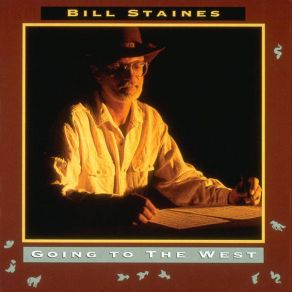Going to the West
Download links and information about Going to the West by Bill Staines. This album was released in 1993 and it belongs to Rock, World Music, Songwriter/Lyricist, Contemporary Folk genres. It contains 12 tracks with total duration of 42:00 minutes.

|
|
|---|---|
| Artist: | Bill Staines |
| Release date: | 1993 |
| Genre: | Rock, World Music, Songwriter/Lyricist, Contemporary Folk |
| Tracks: | 12 |
| Duration: | 42:00 |
| Buy it NOW at: | |
| Buy on iTunes $9.99 | |
| Buy on Amazon $9.49 | |
Tracks
[Edit]| No. | Title | Length |
|---|---|---|
| 1. | Going to the West | 3:14 |
| 2. | Child of Mine | 3:34 |
| 3. | Buffy's Quality Cafe | 3:17 |
| 4. | Chilly Winds | 3:10 |
| 5. | Show Me the Road | 4:15 |
| 6. | River | 4:46 |
| 7. | Crossing the Water | 3:23 |
| 8. | 'Neath the Moon and the Morning Star | 3:45 |
| 9. | Distances and Miles | 4:48 |
| 10. | Fill My Thirst | 2:08 |
| 11. | Autumn Waltz (The Wind River Turnaround) | 2:26 |
| 12. | Black Sheep Boy | 3:14 |
Details
[Edit]Bill Staines, whose 1984 live album, Bridges, was reissued by Red House Records in 1989 and who released a children's collection, The Happy Wanderer, on the Minnesota-based folk independent label earlier in 1993, here completes his transfer from Rounder Records' Philo label by releasing Going to the West, his next regular studio album, on Red House. He is credited for the collection's concept, which is encapsulated in the title, also a traditional song that leads it off. Between that rollicking tune, which recounts the singer's decision to journey, even in the face of his wife's opposition, and the closing track, a cover of Tim Hardin's "Black Sheep Boy" (in which the singer returns home from the West), Staines traces themes of travel, romantic displacement, and memory, mixing his own compositions, new and old, with those of others. His style is more suggestive than specific, his points often cloaked in nature imagery, such as in "'Neath the Moon and the Morning Star," a memory of lost love. In a warm, reassuring voice that recalls Burl Ives, but is more reserved, Staines celebrates a friendly greasy spoon ("Buffy's Quality Cafe"), shares with duet partner Melissa Javors a couple's devotion to their child ("Child of Mine"), apparently despite his wanderlust, and turns in an anthemic, if somewhat abstract, statement of encouragement in "Crossing the Water," which follows a re-recording of his '70s favorite "River." His style is always stately and deferential, and his lyrics usually couched in poetic turns of phrase, although "Distances and Miles" makes explicit the sense of missing love due to the demands of travel.